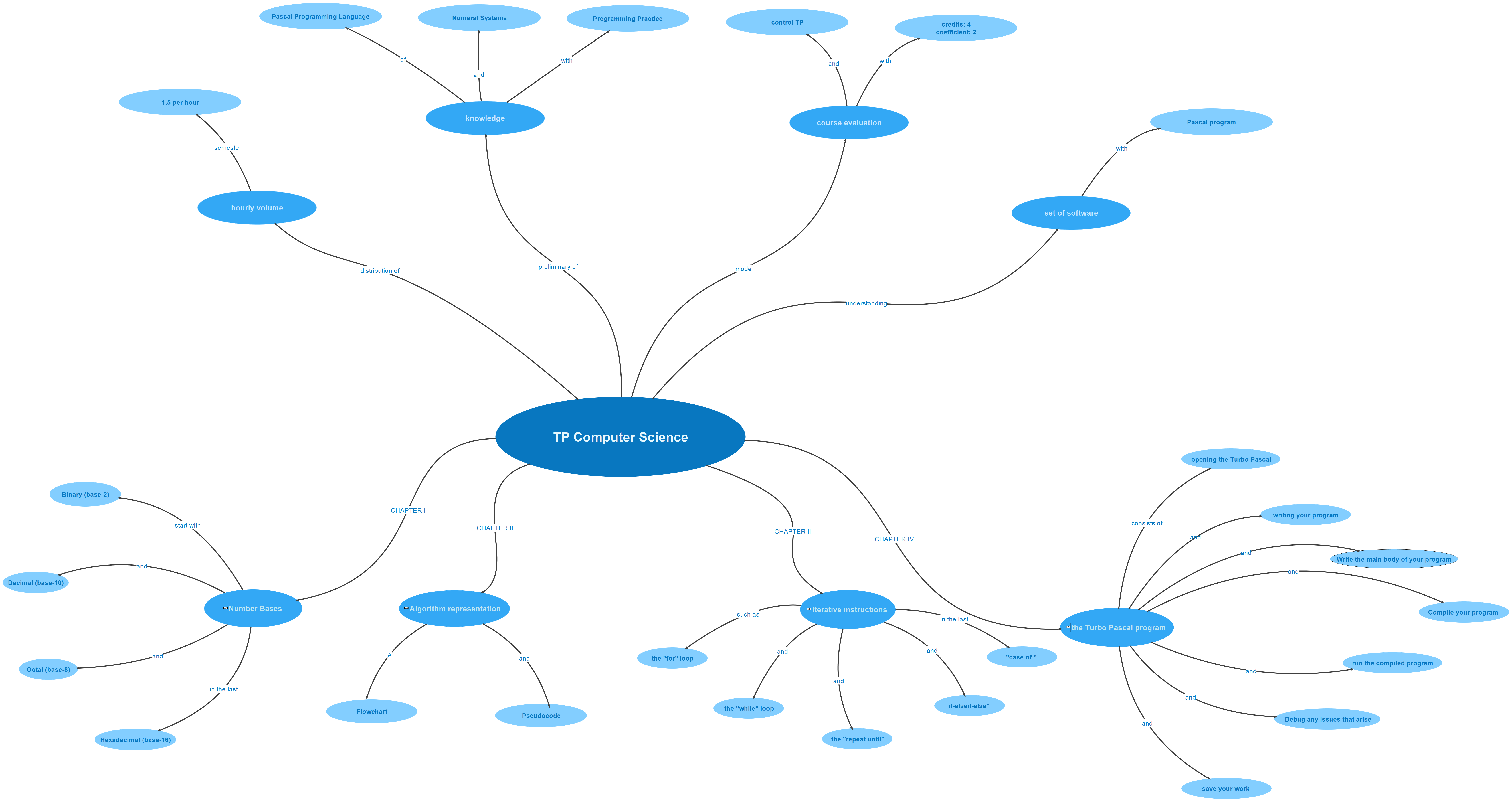Computer Science I-ST -TIC(2024)-BENTATA Khadidja
Topic outline
-

University: University of M'Sila
Faculty: Science and Technology
Department: Electronic
Target Audience: 1st Year license's Students
Course Title: Computer Science 1
Credit: 02
Coefficient: 01
Duration: 15 weeks
Teacher TP: Dr. Khadidja Bentata
Contact: khadidja.bentata@univ-msila.dz -

Objectifs
By the end of this module, the student will be proficient in this subject area according to the cognitive actions specified by Bloom. Here is a detailed breakdown for each level of Bloom's Taxonomy
: Knowledge Level This level involves the ability to recall basic information and facts
a. Basic Definitions and Concepts
Hardware comprises the physical components of a computer system. Software encompasses the programs, applications, and data that run on a computer system
b. Components of Hardware
Central Processing Unit (CPU): Often referred to as the 'brain' of the computer
· Memory: Also known as RAM (Random Access Memory).
Comprehension Level This level involves understanding and interpreting the presented information
a. Explaining Component Function
· The CPU executes instructions stored in memory
Memory temporarily holds data and instructions that the CPU needs to access quickly
.b. Describing Software Processes: The design phase of software development involves conceptualizing the structure and functionality of a program
Application Level This level involves using knowledge in new or practical situations
Applying Concepts in Programming
Writing Code: Translating the design specifications into executable code using a programming language
· Testing: Validating the functionality and correctness of the software through various testing techniques
Analysis Level This level involves breaking down information into its basic components and understanding its structure
.a. Analyzing Software Development Phases: · Overview of the software development lifecycle, including requirements analysis, design, implementation, testing, and maintenance phases
.b. Analyzing Programming
· Algorithm Design: Developing algorithms to solve specific computational problems efficiently
Synthesis Level 4 This level focuses on combining information to create something new or propose innovative solutions
a. System Design: · System Design: Defining the architecture, components, and interactions of the software system
.b. Innovative Software Creation: · Designing data structures to organize and manage data effectively
Evaluation Level This level involves assessing information or ideas using specific criteria
.a. Evaluating Programming Performance: · Debugging: Identifying and fixing errors (bugs) in the code to ensure the software behaves as expected
·.b. Comprehensive System Review: · Through diligent inquiry and critical reflection, we in readers to embark on a journey of intellectual exploration and discovery
-

Basic knowledge of high school-level mathematics, including algebra and logic.
Interest in problem-solving and analytical thinking.

-
-
Chat
-
-
SCORM package
-
Chat
-
Feedback
-
-
Quiz
-
Chat
-
Feedback
-
Forum
-
